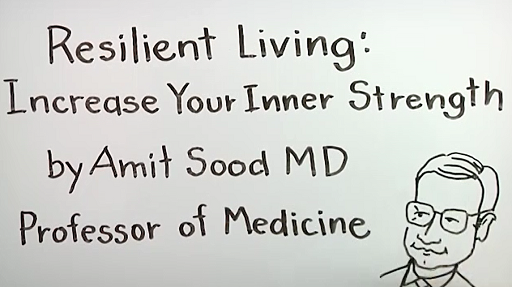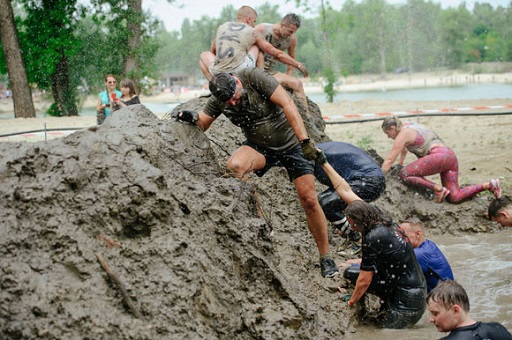Session 1: Understanding resilience
Introduction
A Japanese proverb ‘Fall seven times, stand up eight’ effectively captures the essence of psychological resilience. We know that athletes will face highs and lows and will constantly withstand a wide range of pressures to attain and sustain high performance (Howells and Fletcher, 2016; Sarkar and Fletcher, 2013). This is not only the case for elite athletes and could also be the case for you in your own sport and exercise pursuits, or if you support the performance of others. Indeed, understanding resilience is vital for those involved in an athlete’s journey ‘as it may be fundamental in facilitating ongoing success and positive mental wellbeing’ (Howells, 2022, p. 203).
Before you explore what research tells us about resilience, look at an introduction to resilience more broadly in Activity 1.
Activity 1 Reflecting on your own resilience
First, watch the video ‘Introduction to resilience’ and identify the key points raised.

Transcript: Introduction to resilience
NARRATOR: Since the early 1900s, many scientists opine that some phenomena don't follow a straight line. With no pressure, no challenge, life gets to be boring. We wander into distractions, find ourselves snoring.
Excessive load and pressure, however, isn't what I desire. They hurt my back and morale and douse the creative fire.
I need challenge, I need pressure that is just about right so I don't get bored and jaded, nor weary or too tight.
With 50 user IDs to remember, a question my mind asks, how do I deal with daily deadlines? Little control, countless undone tasks.
Each day is a struggle. I'm barely getting by. I risk burnout and illness, even an early goodbye.
Prioritise, simplify, delegate, better manage your day. To lower my stress, that is certainly one way.
Is there anything else I can do since little is left to snip? Can't I bolster my strength so nothing I need to clip?
I indeed have another option to lift my every experience. That option is to smartly choose a life of resilience.
[MUSIC PLAYING]
Resilience trains my brain. Resilience helps my intention to enhance my creativity, positivity and attention.
With resilience, I bounce back faster, better heal my pain. I'm happier, more productive, get more mileage from my brain.
Friends, resilience is your inner strength that helps you withstand and bounce back from adversity, as well as prevent and grow from life's hardships.
Your happiness and resilience depends on three key factors. Number one your genes, number two, your life situation, and number three, the choices you make. While you can't pick your genes and have limited control over your life situations, you can choose your thoughts, words, and actions that help you be more resilient.
Self-awareness, authentic presence, a can-do attitude, gratitude, compassion, acceptance, nurturing relationships, finding deeper meaning, and a spiritual anchor. These are the nine pillars that support your resilience.
For more information about resilient living, check out stressfree.org.
Having viewed the content, reflect on when and how you, or someone you know, have shown resilience.
Note your thoughts in the box below.
Discussion
You might have noted down that resilience is an inner strength that helps us to withstand and bounce back from adversity, allowing us to ‘get the most mileage from our brain’. You might have reflected on one or more times in your life when you have shown resilience.
As noted on the video – our genes, all aspects of our lives, and the experiences that we have, influence our ability to be resilient.
It is important to emphasise that resilience is a psychological skill that can be learned, and that we can all demonstrate resilient qualities and behaviours. This is critical when we consider that resilience can aid us in our everyday life.

